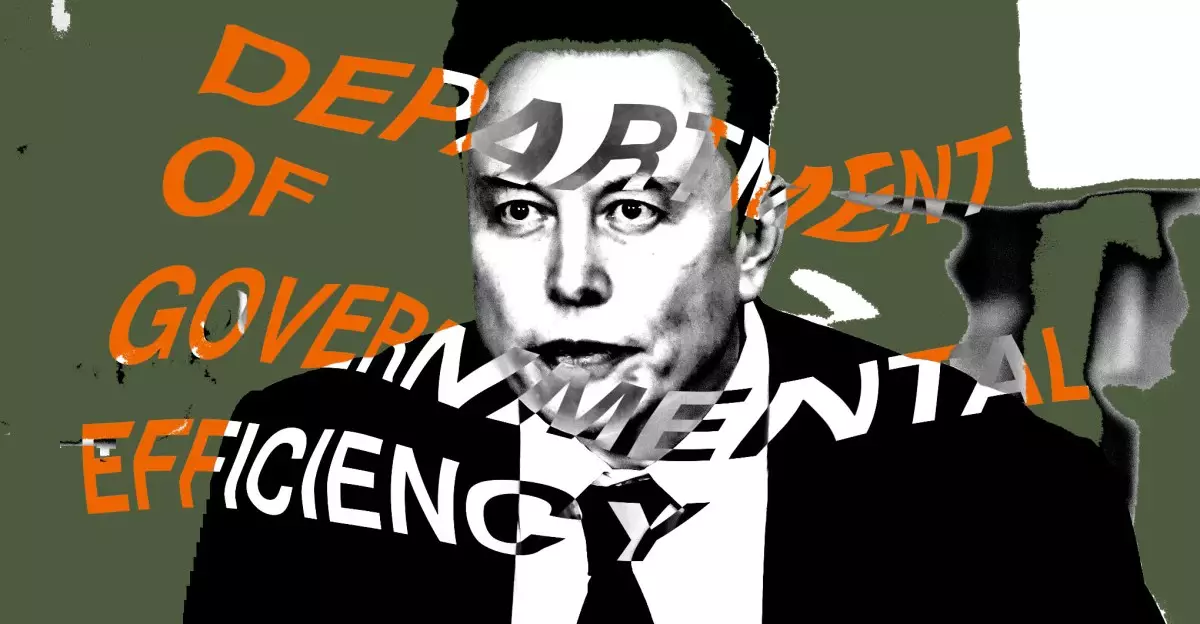The intersection of technology and governance has always been a point of contention, particularly as influential figures exert unprecedented influence over traditional institutions. Recently, Public Citizen, a watchdog organization, raised significant alarms regarding Elon Musk’s alleged unauthorized access to federal payment systems. This article delves into the implications of this development, critiques the actions taken by various stakeholders, and examines the broader context of governance and privacy in the digital age.
Public Citizen’s recent legal filing against the U.S. Treasury Department, led by Secretary Scott Bessent, stems from concerns that Musk, along with entities linked to him, the so-called “Department of Government Efficiency” (DOGE), has been granted what many are calling excessive access to sensitive governmental financial systems. The advocacy group contends that this access not only violates established privacy laws, specifically the Privacy Act of 1974, but also threatens the integrity of personal and financial information of millions of Americans. The complaint is particularly alarming in the context of rising cybersecurity threats and the increasing privatization of governmental functions.
While Musk’s work as a tech entrepreneur has been notable, the implications of intertwining his business interests with governmental operations are profound. Stakeholders argue that private individuals should not have unfettered access to sensitive governmental data, alluding to the risks posed by potential data breaches and the misuse of information. Given the political and economic ramifications, this situation raises legal and ethical questions demanding urgent attention.
Political Repercussions and Legislative Response
The legal challenge has spurred swift reactions from politicians across the spectrum, particularly from Senator Ron Wyden (D-WA) and Senator Elizabeth Warren (D-MA), who have vocally demanded clarity on the nature and extent of Musk’s access to federal payment systems. Their inquiries reflect broader concerns about the potential for misuse of power by individuals with political connections and underscore the principle of accountability in governance.
Senator Wyden’s impassioned call for safeguarding federal financial systems from political overreach spotlights the gravity of the matter. “These payment systems simply cannot fail,” he asserts, highlighting an essential tenet of government operations: the absolute necessity of maintaining the integrity of financial processes. The senators’ letters to Secretary Bessent explicitly question whether any safeguards are in place to prevent the potential abuse of power and unauthorized actions by those connected to Musk’s endeavors.
The ramifications extend beyond Public Citizen’s lawsuit. Legal experts have pointed out that various government entities and individuals affected by these developments may pursue additional legal avenues if Musk’s access remains unchecked. Notably, federal employees facing job precariousness due to the implications of DOGE’s operations may also mount challenges. The role of Congress in such matters cannot be ignored; scrutinizing the allocation of funding and administrative authority will likely emerge as a critical battleground.
In this context, expert opinions suggest that President Trump’s administration may be operating from a precarious position. Legal expert Bradley Moss’s commentary underscores the potential for a legal quagmire as critical boundaries are tested. If this situation is not navigated with caution, the repercussions could set perilous precedents for how technology and governance intersect.
The allegations surrounding Elon Musk’s access to sensitive government payment systems serve as a litmus test for contemporary governance and the foundational principles of privacy and accountability. As advocacy groups and legislators seek answers and push for proper safeguarding measures, the situation prompts a crucial reassessment of the balance of power between private individuals with extensive resources and the public interest they are now positioned to influence.
In an era where technology continues to reshape societal norms, ensuring that power dynamics are appropriately checked will be paramount in preserving democratic integrity and protecting citizens’ rights. Thus, as this situation unfolds, it is imperative that stakeholders not only demand transparency but also establish robust protections to prevent private interests from undermining the essential functions of government.

